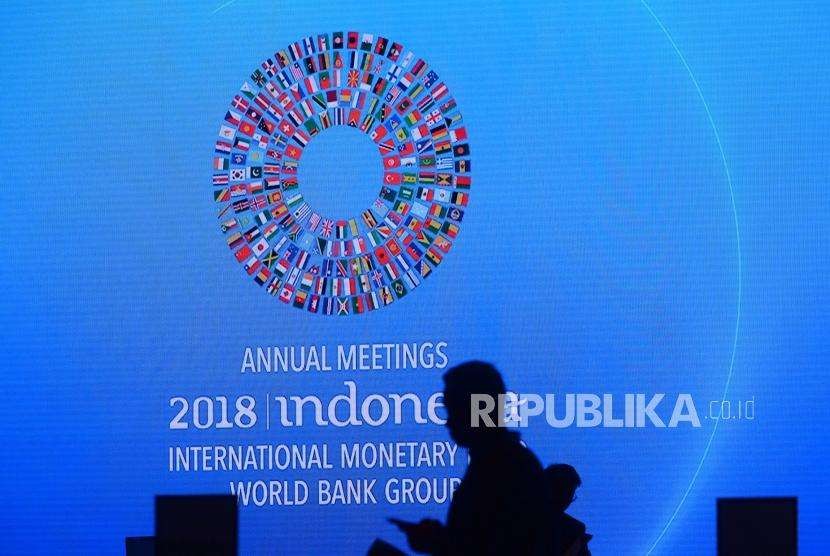REPUBLIKA.CO.ID, NUSA DUA -- International Monetary Fund (IMF) stated that Indonesia has the capacity to boost its economic growth amid the global recession. IMF Deputy Director for Asia and Pacific Department Kenneth Kang stated that some external obstacles, such as the United States normalization monetary policy, had an impact on the depreciation of the Indonesian rupiah to 11 percent against the US dollar.
He said that the same impact was also faced by Australia and New Zealand. "So, Indonesia is not the only country affected by the global economic situation. Amid the shock, the Indonesia fundamental economic is still solid," said Kang on the sidelines of the IMF-World Bank Annual Meeting here on Friday.
A flow of 30 percent of public debt from GDP will boost Indonesia's economic growth, which is predicted to be at around five percent in 2018 and 2019.
Also read: Indonesia's economic fundamentals remain strong
Exchange reserves of USD115 million, manageable inflation, and the capital ratio of banks to 22 percent also showed stability in Indonesia's financial sector.
Indonesia, according to Kang, had a good response against the external pressure by ensuring policy implementation, which focused on economic stability, which targeted lower fiscal deficit and let the exchange rate adjust with the market conditions. Indonesia has made the reforms in the last couple of years by adopting a framework of monetary policy, fiscal role, and open free trade. We also support Indonesia's efforts to stabilize microfinance," Kang added.
IMF just released a book, "Realizing Indonesia's Economic Potential", about Indonesia's progress across many aspects in the last two decades.
The book also unveils a comprehensive package of structural and fiscal reform, which can boost economic growth in the intermediate term, one of the strategies being to improve the additional revenue to around five percent of GDP which can be used to fund infrastructure, education, health, and the service sector. This comprehensive policy combination will boost investment and private business.
"This policy combination can raise Indonesia's growth one percent in the intermediate term," Kang stated.
However, he added, Indonesia may have solid economics, but it should be aware and adapt itself by applying a good macroeconomic policy and structural reform.



